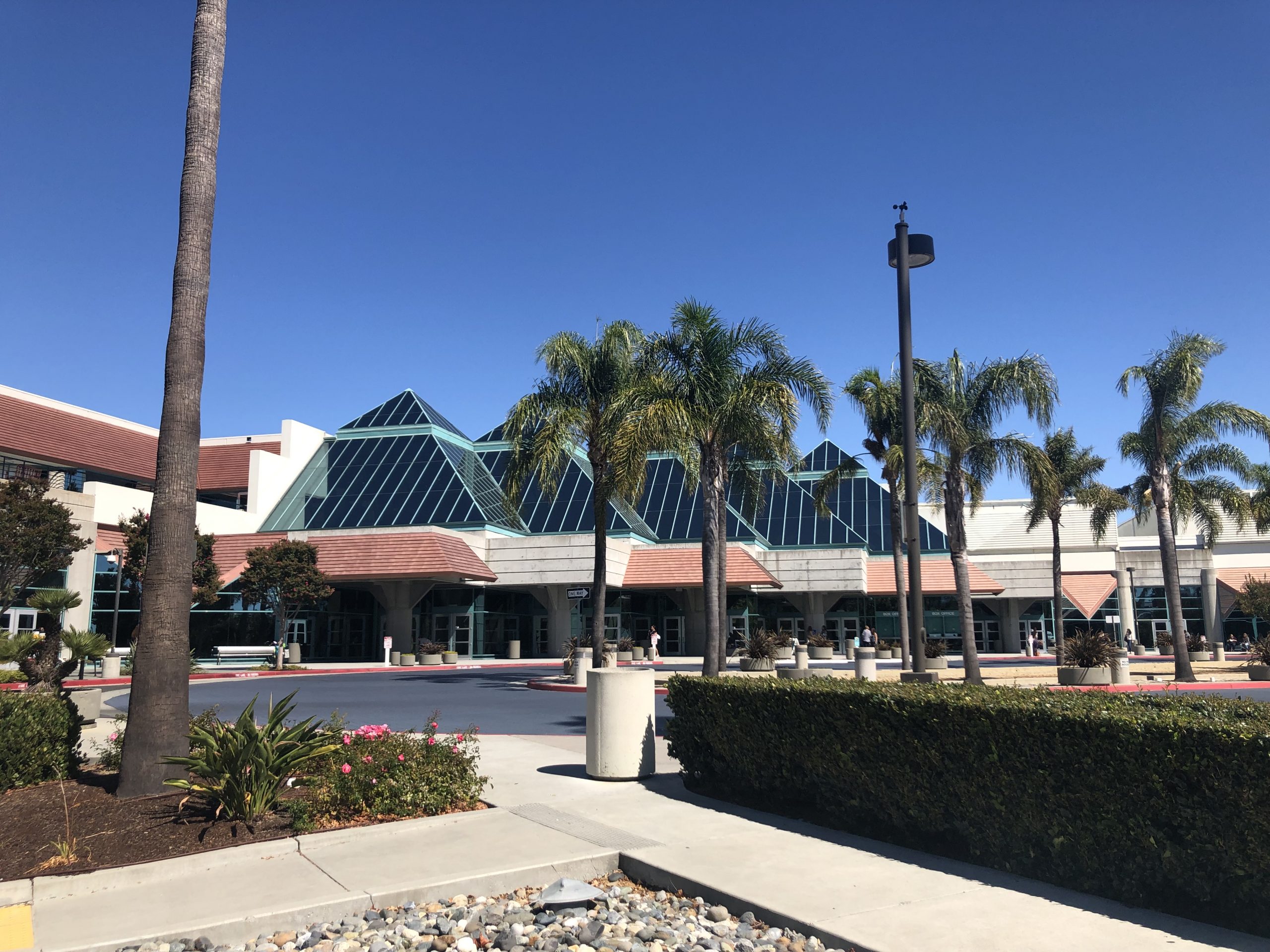

Santa Clara Convention Center attendees will start seeing commercial branding throughout the venue in the next couple years, with the center itself likely taking on a corporate sponsor.
In an attempt to funnel more money into the convention center, the city has opted to hire a consultant to secure naming rights. The effort aims to strike while the iron is hot, with the FIFA World Cup and Super Bowl coming to Levi’s Stadium in 2026.
At its last meeting, the Santa Clara City Council unanimously approved a three-year, $496,859 contract with Oak View Group toward that end.
With more than $10 million in infrastructure needs, and no path toward funding them, the city is in need of revenue sources. Chuck Baker, assistant city manager, called the infrastructure needs a “wish list,” adding that it isn’t a “hair-on-fire” situation.
“In addition to providing financial support by generating significant incremental income, [sponsorships] also fosters important strategic partnerships and long-term business collaborations with companies, companies that do business with the convention center, companies that are seeking to do business with the convention center,” Baker said.
Although the city is going out for a $400 million bond in November, even if it passes, none of the money can be used at the convention center. Eleventh-hour work-plan changes by Mayor Lisa Gillmor and Council Member Kathy Watanabe blocked the use of bond money for the repairs. That is because of the convention center’s proximity to Levi’s Stadium.
Baker told the council that the effort will take place in two phases.
The first phase will cost $46,859, and the second phase will cost $150,000 a year to “maintain the partnerships.” The city manager has the option to execute up to two one-year extensions. Should he decide to do so, the total cost would be $796,859.
During the first phase, which will take place over the first three months, Oak View Group will do an “asset inventory” and evaluation of the market for sponsorships. The next 14 months, i.e., “phase two,” the consultant will conduct marketing and sales, hiring a salesperson and developing relationships with “measurable financial results.”
The agreement bars any sponsorship that interferes with the “character and integrity” of the center, contains a call-to-action, or gives the impression that the city is endorsing the product. Oak View Group will collect a 13% commission on the naming rights and an 18% commission on other sponsorships, something Baker said is a bit lower than is typical.
The city manager can approve sponsorship agreements with two exceptions. In addition to renaming the convention center, renaming the Mission City Ballroom will also require council approval.
City Manager Jovan Grogan said convention centers typically aim to spur spending in the city and generate hotel taxes. So, comparing Santa Clara’s convention center to those in larger cities is not an apt comparison since Santa Clara strives for a more profitable model.
Although Baker told the council that the convention center’s net profit is “growing year over year,” it is more accurate to say it is “recovering,” getting back to a net profitability it saw prior to the pandemic.
Having learned a valuable lesson about sign repair at Levi’s Stadium, the council was concerned about the distinction between “replacement” and “maintenance.” Baker assured the council that the city is “not in the business of replacing signs.”
When asked how much the city would likely bank because of the naming rights, Baker was reluctant to give a concrete number, saying that many things contribute to such figures.
“Baltimore is different from Tucson is different from Santa Clara, right? You’ve got traffic patterns, you’ve got the proximity to [the] highway. There are so many different ways to kind of skin the cat in terms of valuation,” Baker said.
Primary naming rights will likely generate “several million dollars” over 10 years, with the five-to-10 sponsorships within the center likely to generate “$1 million plus,” Baker said.
Later, he gave examples of similar-sized cities Toledo, Ohio, which banked roughly $5 million over 15 years, Des Moines, Iowa, which saw $2.5 million in revenue and Tulsa, Okla., which collected $2.2 million, both over 10 years.
Contracts for naming rights are typically between five and 10 years long. Other naming rights — for entryways, ballrooms, beverage pouring rights — are typically between three and 10 years. Baker said the city can “get creative” with smaller sponsorships while being aware of “logo fatigue.”
James Williams wasn’t just Santa Clara’s first African American citizen and one of the first…
Can you spell deja vu? The battle over the best way to teach children how…
A new Sunnyvale rideshare shuttle will make it easier to get around the city’s Peery…
Former city council member and long-time active member of the Santa Clara community, Debi Davis, passed…
Californians' confidence in their public schools and approval of how Gov. Gavin Newsom and the…
Rotary Park is a neighborhood playground located a block from Santa Clara City Hall. For…